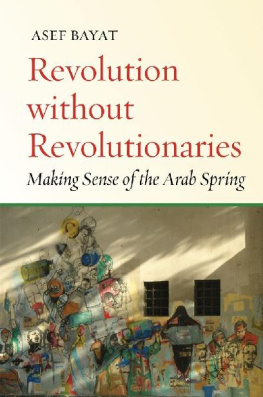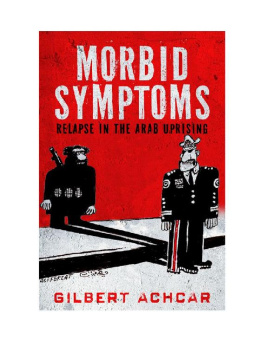Dont read this book to be comforted. Read it to be challenged, terrified, enlightened, moved, and amazed.
Kamila Shamsie, author of Home Fire
Alaa is the bravest, most critical, most engaged citizen of us all. At a time when Egypt has been turned into a large prison, Alaa has managed to cling to his humanity and be the freest Egyptian.
Khaled Fahmy, author of All The Pashas Men
Alaa is in prison not because he committed a crime, not because he said too much, but because his very existence poses a threat to the state. Those who are bold, those who do not relent, will always threaten the terrified and ultimately weak state which must, to survive, squash its opponents like flies. But Alaa will not allow himself to be crushed like that, I know.
Jillian C. York, director of International Freedom of Expression at the Electronic Frontier Foundation
Alaa is a philosopher of everyday life and lifelong struggle; he doesnt merely find meaning in that which we go through, especially in dark political moments, but creates meaning and gives it form in writing. And he does so from a highly entrenched and implicated place in the present. His thoughts know no frontiers; they pierce through local contexts to inspire new modes of thinking about the chaotic substance of politics.
Lina Attalah, editor in chief of Mada Masr
YOU HAVE NOT YET BEEN DEFEATED
selected works 20112021
ALAA ABD EL-FATTAH
Foreword by
naomi klein
Translated by
a collective
SEVEN STORIES PRESS
NEW YORK OAKLAND
Copyright Alaa Abd el-Fattah, 2021
Translation copyright Collective, 2021
Published in North America by Seven Stories Press in 2022
All rights reserved.
No part of this book may be reproduced,
stored in a retrieval system, or transmitted in any
form or by any means, including mechanical, electronic,
photocopying, recording, or otherwise, without the
prior written permission of the publisher.
Seven Stories Press
140 Watts Street
New York, NY 10013
www.sevenstories.com
College professors and high school and middle school teachers may order free
examination copies of Seven Stories Press titles.
Visit https://www.sevenstories.com/pg/resources-academics
or email academics@sevenstories.com.
Library of Congress Cataloging-in-Publication Data has been applied for.
Printed in the USA.
9 8 7 6 5 4 3 2 1
CONTENTS
CHRONOLOGY: EGYPT 19522021
July 1952: Mid-ranking army officers stage a coup, depose King Farouq and take control of the state. Mohammed Naguib is their figurehead and the Revolution Command Council is established as the ruling authority.
August 1952: Workers protest for better conditions in Kafr al-Dawwar is brutally repressed, and two of the workers are sentenced to death and executed.
September 1952January 1953: The Agrarian Reform Law initiates a major land redistribution programme, bolsters popular support for the revolution. The Constitution of 1923 is abrogated. All political parties are dissolved and banned.
January 1954: After a short honeymoon period with the revolution, the Muslim Brotherhood is outlawed.
March 1954: Naguib, who favoured a return to constitutional government, is sidelined. Gamal Abdal Nasser consolidates power.
October 1954: Nasser survives an assassination attempt. The Brotherhood are blamed and a brutal crackdown begins.
March 1956: A new election law grants women the right to vote.
July 1956: Egypt nationalizes the Suez Canal.
October 1956: Israel invades Egypts Sinai Peninsula, under agreement with France and the UK, but international pressure forces their withdrawal. A major political victory for Nasser. Control of the canal is cemented.
1959: Arrests of communist intellectuals and activists begin. Hundreds are detained, some are tortured, at least two are killed, most are not released until 1964.
January 1960: Construction begins on the Aswan High Dam, Nassers landmark development project.
September 1961: Nasserwith Nehru of India and Tito of Yugoslaviainitiates the International Non-Aligned Movement.
June 1967: War between Israel and Egypt, Syria, and Jordan. Israel occupies the Palestinian West Bank, the Gaza strip, the Syrian Golan Heights, and Egypts Sinai Peninsula. A humiliating defeat. A war of attrition begins against Israeli forces now occupying the east bank of the Suez Canal.
September 1970: Nasser dies of a heart attack. His successor is Vice-President Anwar El-Sadat.
May 1971: Sadat purges powerful opponents with the Corrective Revolution, announces the closure of political detention centres, and starts releasing detained activists, mainly Muslim Brotherhood members.
January 1972: A student uprising demanding democracy, press freedom and a popular war to liberate Sinai, occupies Tahrir Square and is expelled by police with force.
October 1973: Egypt and Syria launch war against Israel in an effort to regain lands lost in 1967.
April 1974: Members of an Islamist group break into the Technical Military Academy in Cairo: the first step in a planned coup to announce the birth of an Islamic State. Security forces engage, killing eleven.
April 1974: Sadats October Paper sets the stage for a complete reversal of economic policy: promoting entrepreneurship over central planning, and the dismantling of the public sector.
January 1977: A price hike of basic commodities triggers massive riots across the country. The army is deployed, a curfew imposed and more than 100 people are killed.
August 1978: Sadat establishes the National Democratic Party (NDP) which inherits the assets, resources and status of the state political party, the Socialist Union.
197779: Sadat visits Jerusalem to address the Knesset. He signs the Camp David Accords with Jimmy Carter and Menachem Begin. In response, Egypt is boycotted by most Arab countries, the headquarters of the Arab League are moved from Cairo to Tunis and Egypts membership is suspended.
1979: Soviet forces invade Afghanistan, triggering a guerrilla war with local Islamist mujahideen. The CIA begins covert operations in support, which Sadat is heavily involved with: supplying Soviet weapons to the fighters, training insurgents, and allowing Egyptian militant Islamists to travel to Afghanistan to join the war.
May 1980: Sadat openly denounces the Coptic Church, accusing it of trying to establish a state within a state.
September 1981: Sadat deposes the Coptic Pope. He orders the arrests of 1,536 peoplewho fall across the entire political and professional spectrum. This is accompanied by asset freezes, professional expulsions and the closure of certain newspapers.
October 1981: Sadat is assassinated by members of a militant Islamist group while attending a military parade. The group begins a simultaneous insurrection in Asyut and takes control of the city for a few days before paratroopers from Cairo restore government control. Sadat is succeeded by his Vice-President Hosni Mubarak and a state of national emergency is declared. It will be continually renewed throughout the coming thirty years of Mubaraks rule.
September 1984: Workers demonstrate and stage a sit-in at Kafr el-Dawwar Spinning & Weaving Factory (public sector), protesting rising food prices and demanding increased pay. The sit-in is violently broken up by police forces, leaving three workers dead. Several more strikes will follow, protesting rising prices, low pay, corruption, neglect of the public sector and the complicity of the official workers unions.










